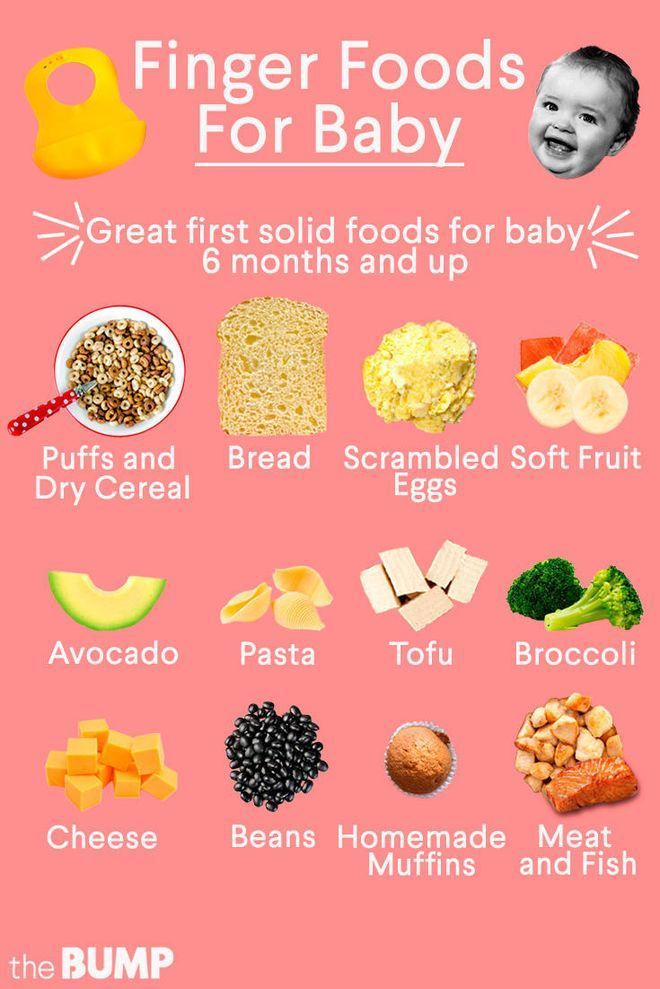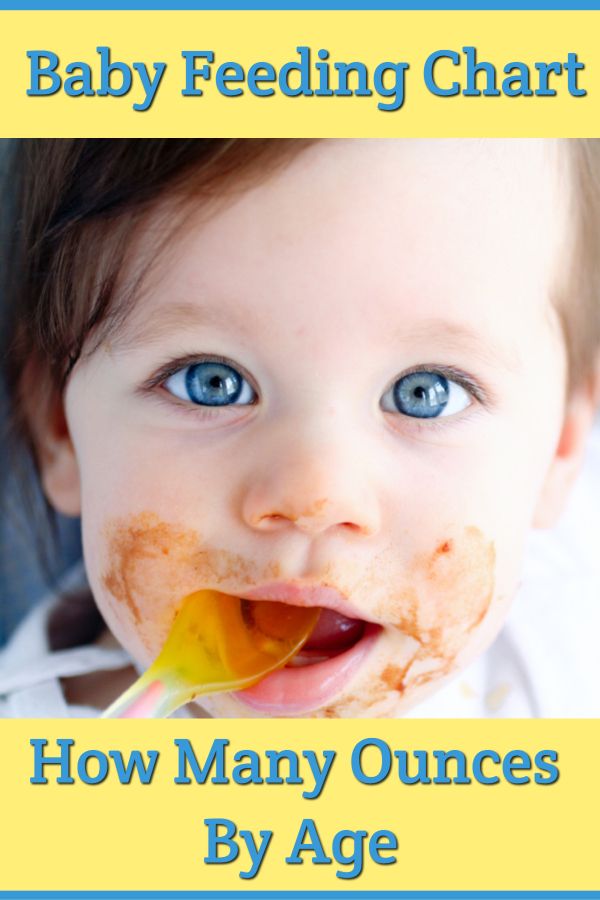Baby only feeds when asleep
Sleep Feeding - Why Your Baby Only Feeds While Drowsy Or Asleep – Baby Care Advice
You might choose to breastfeed or bottle-feed your baby while sleeping in a bid to influence his night time feeding pattern, or perhaps because it’s now the only way he will feed without dispute. If sleep feeding your baby is something you plan to try, or would like to change, this article may help you decide the next step to take.
What is sleep feeding?Sleep feeding, sometimes called dream feeding, occurs when a baby feeds while drowsy or asleep. Baby might be awake at the start, then fall asleep while feeding and continue eating during light sleep. Or a feed might be provided when baby is already in a drowsy state, while sleeping, or as he begins to arouse from sleep.
Sleep feeding can be baby led – something baby does in response to an underlying feeding or sleeping problem. Or Parent led – something a parent initiates in an attempt to resolve an infant feeding or sleeping problem.
Feeding your baby in a drowsy or sleepy state might not be something you choose to do, rather it could be something you feel compelled to do if he rejects feeds when awake, does not eat enough when feeding while awake, or because he appears to favor feeding in a sleepy state.
Your baby could partially sleep feed. Perhaps he takes some milk awake, then falls asleep while feeding and finishes the rest, or you might wait until he’s asleep before offering the remainder of his feed. Alternatively, your baby might exclusively feed during sleep.
Some reasons babies appear to prefer sleep feeding include:
1. Sleepy newbornsThe time and effort to feed consumes a great deal of energy for a newborn. Newborn babies characteristically begin feeding in an alert state, become drowsy once their initial hunger is satisfied but continue sucking during light sleep, stopping only once deeply asleep or when the bottle is drained.
Most newborns have a strong desire to suck at times in addition to feeding. They particularly enjoy sucking when tired. Newborns have an active sucking reflex, which means they are likely to feed, awake or during light sleep, whenever a feed is offered.
2. Feeding-sleep associationWhen a baby repeatedly falls asleep while feeding, feeding can become a sleep association (something he psychologically links with the act of falling asleep). A feeding-sleep association means a baby will seek to feed (by rooting, sucking his fist, fussing or crying) whenever he is tired and ready to sleep, irrespective of whether he’s hungry at the time or not, because past experiences have taught him that this is how he goes to sleep. Reliance on feeding as a sleep association increases the risk of broken sleep (see Sleep Associations for explanation). So baby’s naps may be cut short causing him to awaken still tired. As a result, he tolerates only short periods awake before tiring and then starts crying to be fed to sleep once again. If a feed is denied, he becomes progressively more distressed. If a feed is provided, he quickly falls asleep. When fed on demand, a baby who has developed a feeding-sleep association that causes broken sleep will appear to want to feed frequently, perhaps more often than expected, and feed mostly in a sleepy state. If his nutritional needs are met during sleep feeds, this eliminates the need to feed while awake, and it becomes increasingly more likely he will feed solely in a sleepy state out of habit.
If a feed is denied, he becomes progressively more distressed. If a feed is provided, he quickly falls asleep. When fed on demand, a baby who has developed a feeding-sleep association that causes broken sleep will appear to want to feed frequently, perhaps more often than expected, and feed mostly in a sleepy state. If his nutritional needs are met during sleep feeds, this eliminates the need to feed while awake, and it becomes increasingly more likely he will feed solely in a sleepy state out of habit.
Pressure applied in an attempt to compel a baby to feed or continue feeding when he doesn’t want to, makes feeding an annoying, unpleasant or stressful experience for baby (and parents). When repeated time and time again, pressure to feed can cause a baby to develop a behavioral feeding aversion. Sleep feeding is a situation that commonly evolves when a baby has developed a behavioral feeding aversion due to pressure.
When averse to feeding, baby becomes distressed and refuses to feed either as soon as he realizes he’s going to be fed or after consuming a small amount (typically, a similar amount each time). However, when drowsy or asleep, and therefore less aware, he lets down his guard, sucking instincts kick in and he feeds well with minimal resistance. After discovering that baby feeds without objection in a sleepy state, many parents choose to wait until their baby is drowsy or lightly asleep before attempting to feed him. That way they can avoid feeding battles. Over time the balance between awake and sleep feeds can shift towards baby being solely fed drowsy or while sleeping.
However, when drowsy or asleep, and therefore less aware, he lets down his guard, sucking instincts kick in and he feeds well with minimal resistance. After discovering that baby feeds without objection in a sleepy state, many parents choose to wait until their baby is drowsy or lightly asleep before attempting to feed him. That way they can avoid feeding battles. Over time the balance between awake and sleep feeds can shift towards baby being solely fed drowsy or while sleeping.
Due to advancements in brain development, babies become progressively more aware of their surroundings during light sleep as they mature. Around 5 months of age, it generally becomes increasing more difficult to sleep feed a baby who has become averse to feeding while awake. If baby senses he’s being fed while sleeping, he will either resist or stop feeding, and if the parent persists he will wake and vigorously reject the feed. When sleep feeding fails, parents may find they have no means to ensure their baby receives sufficient quantities of milk and as a consequence baby’s weight falters. (See Feeding Aversion for more).
(See Feeding Aversion for more).
The 3 problems described above can occur in isolation, or they can be connected. A sleepy newborn is susceptible to developing a feeding-sleep association if parents don’t take active steps to prevent this from occurring. As a result of a feeding-sleep association, over time baby may develop a habit of feeding in a drowsy or sleepy state. Frustration over the fact that baby rejects feeds while awake can cause a parent to try to gently pressure their baby to feed. If pressured to feed, this can cause a baby to develop an aversion to feeding, adding another layer of complexity to this problem. This situation can occur if baby is breastfed or bottle-fed.
Health professionals in general are unaware of the behavioral reasons why this common feeding problem develops. They are therefore unable to advise parents on how to encourage their baby to return to willingly feeding while awake. But we can! Baby Care Advice professionals have extensive experience in supporting parents to resolve these and other types of feeding problems.
FALSE: When a baby displays distressed behavior during feeds, this is commonly attributed to pain associated with acid reflux. (As is most other problematic behavior displayed by healthy babies when the reason is unclear). Sleep does not prevent a baby from feeling pain. If pain is the reason for a baby’s distress at feed times when awake, pain would cause baby to awaken and display distressed behavior when sleep feeds are attempted. Pain associated with the burning effects of acid reflux is not exclusive to awake feeds, and it does not suddenly disappear simply because the feed has stopped. A baby experiencing pain during feeds will scream long after feeding has ceased. (See Reflux for more).
A behavioral feeding aversion is far more likely to be the reason for a baby to display aversive or distressed feeding behavior while awake and yet feed well during sleep. In the case of a behavioral feeding aversion, baby’s distress ends soon after parents stop trying to feed their baby, and he feeds well during sleep because he’s unaware that he’s being fed and therefore does not resist.
In the case of a behavioral feeding aversion, baby’s distress ends soon after parents stop trying to feed their baby, and he feeds well during sleep because he’s unaware that he’s being fed and therefore does not resist.
Most newborn babies will occasionally or often sleep-feed without any obvious complication. However, regardless of whether it is something that is initiated by a parent or baby, there are potential problems linked with sleep feeding.
Sleep deprivation
A feeding-sleep association can result in broken sleep, which could then cause infant distress due to sleep deprivation.
Underfeeding
A chronically sleep-deprived baby might fall asleep before completing the feed. A rigid feeding schedule in this case could result in underfeeding.
Overfeeding
Newborns babies are susceptible to overfeeding because they have an active sucking reflex. Offering feeds that are not demanded could create or add to an overfeeding problem. (The GI symptoms associated with overfeeding are commonly mistakenly blamed on reflux, milk allergy or intolerance. See Lactose Overload for more).
Offering feeds that are not demanded could create or add to an overfeeding problem. (The GI symptoms associated with overfeeding are commonly mistakenly blamed on reflux, milk allergy or intolerance. See Lactose Overload for more).
Tooth decay
The frequency of swallowing decreases during sleep compared to awake. Milk can pool in baby’s mouth providing food for bacteria that cause tooth decay to flourish.
Aspiration
Feeding in a sleepy state increases the risk that a baby might choke or inhale milk into his lungs.
Respiratory infections
Studies show that babies who sleep feed are at increased risk of developing respiratory infections.
Financial strain
The search for a solution that will encourage baby to return to feeding while awake can be an expensive one. The first thing that parents usually try is switching formula, often multiple times. Then different nipples and bottles.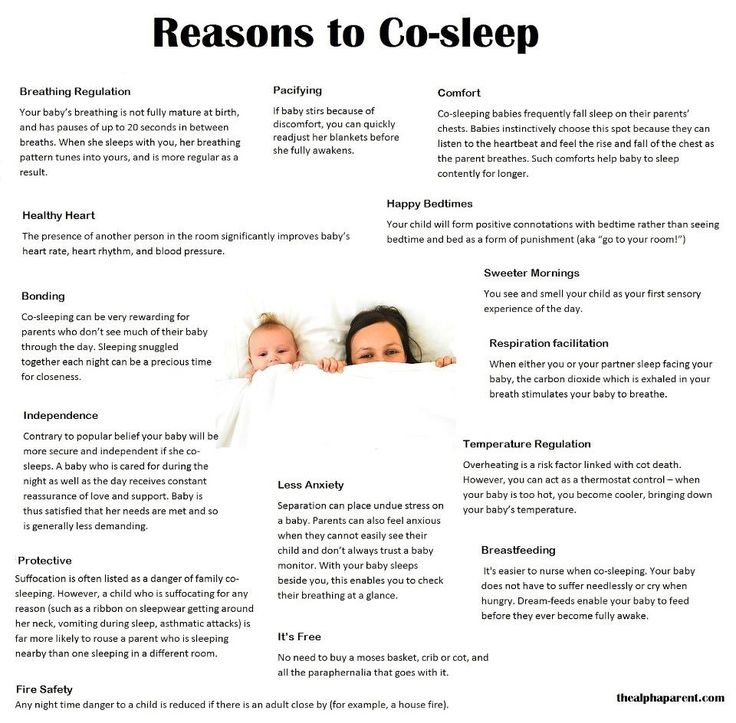 When this fails, as it generally does for this type of problem, most parents will then seek medical advice. Typically babies who display aversive behavior when awake are diagnosed with acid reflux. (A diagnosis of acid reflux mostly occurs because medicos in general are unfamiliar with the management of problems such as a feeding-sleep association, feeding aversion, overfeeding and other behavioral problems commonly affecting physically well babies. See Why Others Fail). So baby is prescribed medications, in some cases multiple medications, which may be switched many times. If medications fail to improve the situation, which they will if the source of the problem is behavioral, next baby may be diagnosed with suspected milk allergy or intolerance and switched to a hypoallergenic formula. If that doesn’t help, baby may be referred to one or more medical specialists, a dietician, speech or occupational therapist, and possibly undergo a series of diagnostic tests. (No amount of medication or dietary change will make a difference if the source of baby’s troubles is behavioral and not physical).
When this fails, as it generally does for this type of problem, most parents will then seek medical advice. Typically babies who display aversive behavior when awake are diagnosed with acid reflux. (A diagnosis of acid reflux mostly occurs because medicos in general are unfamiliar with the management of problems such as a feeding-sleep association, feeding aversion, overfeeding and other behavioral problems commonly affecting physically well babies. See Why Others Fail). So baby is prescribed medications, in some cases multiple medications, which may be switched many times. If medications fail to improve the situation, which they will if the source of the problem is behavioral, next baby may be diagnosed with suspected milk allergy or intolerance and switched to a hypoallergenic formula. If that doesn’t help, baby may be referred to one or more medical specialists, a dietician, speech or occupational therapist, and possibly undergo a series of diagnostic tests. (No amount of medication or dietary change will make a difference if the source of baby’s troubles is behavioral and not physical).
Parental stress
When a baby will only feed in a sleepy state, ensuring he gets enough to eat dominates family life. Feeds need to be timed precisely to when baby has just fallen asleep or when he’s stirring awake. Because babies can be in light sleep for a short period of time, the amount of milk taken at each feed may be small, which means baby requires feeding more often than average for age. Most parents feel they’re housebound because they don’t want to miss a feeding opportunity by going out with baby. Parents might choose to sleep feed baby multiple times during the night in a bid to increase his total daily milk intake.The stress associated with hours trying to ensure baby gets enough to eat, exhaustion from providing multiple night feeds, numerous health visits and the associated financial strain, can take a significant toll on parents’ physical and emotional health.
Reasons parents offer dream feedsYou might choose to sleep feed your baby in the late evening for one of the following reasons.
Some babies will have their longest block of continued sleep in the first half of the night and wake in the early hours of the morning to feed. Dream feeding your baby before you go to bed could potentially encourage him to have his longest block sleep from that point onwards, thereby increasing your hours of uninterrupted sleep.
2. Reduce the chance of baby waking at nightIn general, babies under the age of 6 months require one or more feeds during the night. Providing your baby with a feed while asleep, before he wakes to demand one, may enable him to continue sleeping. The benefit is you don’t need to settle him back to sleep.
3. Increase baby’s milk intakeProviding a sleep feed or two at night might increase your baby’s total daily milk intake.
How to dream feed your babyA dream feed is the feed that you give baby before you go to bed.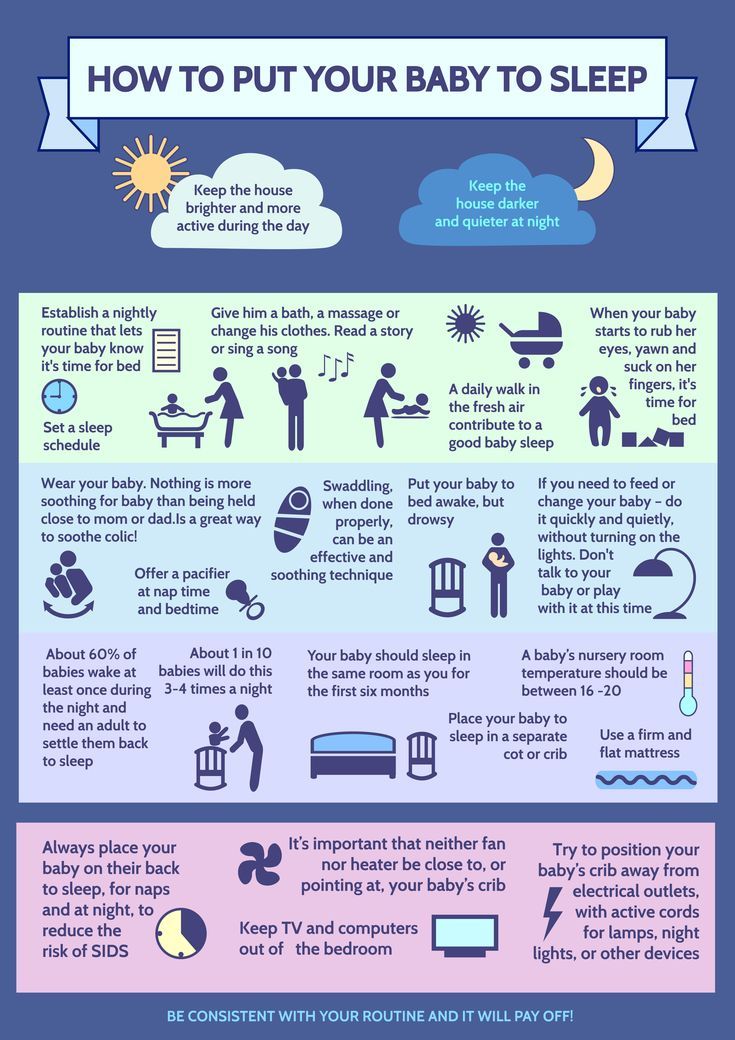 Aim for the feed to be between 10pm and 11pm, but allow 2.5 to 4 hours to go by since your baby's last feed.
Aim for the feed to be between 10pm and 11pm, but allow 2.5 to 4 hours to go by since your baby's last feed.
Keep lights low. Avoid talking or loud noise.
If breastfeeding, gently take your sleeping baby into your arms.
Dream feed a bottle-fed baby in his crib. Prop him on a pillow so that he feeds in a semi-reclined position. Remove the pillow and lay him flat once he has finished feeding. (Never leave your baby to feed unsupervised or leave a pillow in the crib with a baby).
Without waking him gently rub your nipple or the nipple of the bottle across his lips. If he doesn’t react, try to gently open his mouth and insert the nipple.
Burping is usually not necessary because babies generally swallow very little air while sleep feeding. If you feel your baby needs burping, try sitting him in an upright position. Rub his back rather than pat. If he has not burped within 2 minutes, give up.
If you have picked your baby up, return him to bed while he’s still sleeping. If he begins to awaken at any time, try making a shushing sound to soothe him back to sleep.
If he begins to awaken at any time, try making a shushing sound to soothe him back to sleep.
Only change his diaper if its heavily wet or soiled.
Automatic, rhythmical sucking and swallowing is strong during light sleep but decreases as sleep deepens. With a dream feed, your baby may have already been sleeping for a number of hours, and its possible that he could be deeply asleep. If he’s not sucking, you may need to arouse him slightly by stroking his cheek, chest, a hand or foot. If you’re not able to arouse him enough so that he feeds, try a different time tomorrow night.
If you’re already sleep feeding your baby during the day, perhaps because it’s the way he feeds best, you have probably already figured out that feeding him during light sleep (i.e. when drowsy, or shortly after he has fallen asleep, or when he is arousing from a nap) works best.
Disadvantages of dream feedingMany parents swear that a late evening sleep feed (dream feed) promotes better sleep for their baby and therefore better sleep for themselves. However, others find feeding their baby during sleep does not provide the benefits they hoped for. And in some cases, it has unintended and unwanted consequences; for example:
However, others find feeding their baby during sleep does not provide the benefits they hoped for. And in some cases, it has unintended and unwanted consequences; for example:
Baby doesn’t suck
Babies tend to spend longer periods of time in deep sleep during the first half of the night. If your baby is deeply asleep when you attempt to sleep feed him, there’s a good chance he’s not going to suck. Also the ability to feed while sleeping decreases as a baby gets older
Baby still wakes at the same time
There’s no guarantee that a dream feed will help your baby to remain asleep for the period you hope he will. For many babies dream feeding makes no difference to their nighttime sleeping pattern. They continue to wake at the same time regardless of whether they receive a dream feed or not. Hunger is not the only reason that babies wake during the night. The presence or absence of familiar sleep associations has a strong influence over a baby’s ability to fall asleep and remain asleep, more so the older, and thus more aware, baby becomes.
Destabilize baby’s internal body clock
If your baby is not waking to demand a feed around the time you dream feed him, then how do you know he actually needs feeding at that time? The older your baby becomes the more likely it is that sleep feeding will hinder the natural progression of his circadian rhythms (24-hour internal body clock). Sleep feeding can disrupt a baby’s natural sleep-wake patterns causing him to wake more often during the night. It also has the potential to provide more milk than a baby needs to consume during the night, and by doing so decrease his appetite and desire to eat the next morning.
You might lose sleep
Without achieving the benefits you hoped for, sleep feeding could mean you are needlessly sacrificing some of your sleep by staying up late or getting up at a set time to provide your baby with a feed that he may not need.
Disadvantages also include the potential problems associated with sleep feeding listed above.
Written by Rowena Bennett
© Copyright Babycareadvice.com. All rights reserved. Permission from author must be obtained to reproduce all or any part of this article.‘Your Baby's Bottle-Feeding Aversion’ book
In my book, ‘Your baby’s Bottle-feeding Aversion’, I have described physical and behavioral reasons for babies to develop an aversion to bottle-feeding. How to identify the cause and the solutions to match. Included are step-by-step instructions on how to regain your baby’s trust and resolve a feeding aversion caused or reinforced by repeated pressure to feed.
While the book was written for bottle-fed babies, many nursing mothers have found that applying the same strategies has also helped them to successfully resolve a breastfeeding aversion.
You might find that reading this book is all you need to do to understand the steps you need to take to resolve your baby’s feeding aversion and get him back to the point of enjoying eating until satisfied.
Six time-saving modules to help your family enjoy feeding again with Rowena's step-by-step plan. Enjoy additional tools to manage anxiety, troubleshoot any issues, introduce new carers, how to manage illness/teething and much more.
- Module 1: Understanding feeding aversions
- Module 2: Identify the cause
- Module 3: Prepare for success
- Module 4: How to resolve your baby's bottle-feeding aversion
- Module 5: What to expect
- Module 6: Troubleshooting
- BONUS: Guided meditations
Breastfeeding at night - La Leche League GB
Breastfeeding at night is one of the most discussed topics at La Leche League meetings, both in person and online. This is often because breastfeeding at night, especially in the early days, can be so important to establishing a successful breastfeeding relationship. It is also because of its inextricable link with the topic of sleep, which can be one of the biggest changes many mothers and families experience when they have a new child.
This is often because breastfeeding at night, especially in the early days, can be so important to establishing a successful breastfeeding relationship. It is also because of its inextricable link with the topic of sleep, which can be one of the biggest changes many mothers and families experience when they have a new child.
There is no doubt that caring for a new baby can be exhausting, especially if you feel you are not getting enough sleep. Understanding why breastfeeding at night is so important can help. There is a huge amount of both reliable and rather less reliable information on the internet and in countless parenting books about what infant sleep ‘ought’ to be like, and therefore what infant night-time feeding ‘ought’ to be like. This article is designed to give mothers and parents the information and reassurance they need to inform their own night-time breastfeeding approach, including some helpful tips on how to get more rest when you can.
Breastfeeding at night in the early weeks and months is normal and important
Babies wake to feed at night in the early weeks and months (and often beyond) for a number of important reasons. Breastfeeding at night is a vital part of establishing and maintaining a good milk supply and ensuring that newborn babies get all the milk they need to grow and thrive. Breastmilk works on a supply and demand basis: the more milk that is removed, the more milk your breasts make. For the majority of mothers, this means milk needs to be removed roughly every 2-3 hours in the early weeks. Although some babies may sleep for slightly longer periods overnight, perhaps 3-4 hour stretches, newborn babies will typically wake several times a night to feed. This also helps to ensure that you don’t get engorged breasts, which may lead to blocked ducts or mastitis.
Breastfeeding at night is a vital part of establishing and maintaining a good milk supply and ensuring that newborn babies get all the milk they need to grow and thrive. Breastmilk works on a supply and demand basis: the more milk that is removed, the more milk your breasts make. For the majority of mothers, this means milk needs to be removed roughly every 2-3 hours in the early weeks. Although some babies may sleep for slightly longer periods overnight, perhaps 3-4 hour stretches, newborn babies will typically wake several times a night to feed. This also helps to ensure that you don’t get engorged breasts, which may lead to blocked ducts or mastitis.
Newborn babies often wake to feed because their bodies have signalled that they are hungry. However, newborns (and babies and children of all ages) also wake at night for many other reasons, including being scared or uncomfortable, being hot or cold, feeling the need for comfort and connection, and so on. As adults, we have developed ways of meeting these needs ourselves – adjusting a pillow, having a sip of water, cuddling our partner. As babies have no way of independently meeting these needs, they rely on their mother or parent to meet them. Breastfeeding at night offers mothers a way of easily and conveniently meeting the vast majority of these needs in one go.
As babies have no way of independently meeting these needs, they rely on their mother or parent to meet them. Breastfeeding at night offers mothers a way of easily and conveniently meeting the vast majority of these needs in one go.
Lots of research shows that night waking is the biological norm for babies.i You can read more about it here as well as in Sweet Sleep, La Leche League International’s exhaustive publication on nights and naps for breastfeeding families. Research also shows that, overall, breastfeeding mothers get more sleep than mixed- and formula-feeding mothers. This is for a number of reasons, including the impact of natural hormones and chemicals released for baby and mother when breastfeeding at night. There is also a perception that babies who have formula milk sleep longer than breastfed babies. Evidence shows this is not the case.ii “Despite the common perception that supplementing an infant’s diet with formula milk or solid food will promote sleep, a recent study found that there was no difference in the frequency of night waking between breastfeeding and formula feeding infants aged 6-12 months old. Infants who received more milk or solid feeds during the day were less likely to feed at night but not less likely to wake.”iii
Infants who received more milk or solid feeds during the day were less likely to feed at night but not less likely to wake.”iii
Breastmilk at night
Research shows that breastmilk changes all the time, in response to all sorts of things, like the needs and health of your baby, temperature, and the time of day. For most mothers, breastmilk will gradually increase in fat content throughout the day. During the evening, young babies often cluster feed, taking in frequent feeds of this fattier milk, which tends to satisfy them enough to have their longest stretch of sleep. This cluster feeding in the early months may go on late into the evening when you were hoping you would be asleep, which can naturally feel exhausting.
Overnight, your prolactin levels – the hormone designed to support milk production – are at their highest. So, when your baby feeds frequently at night, the message to your body to boost milk supply is even stronger. Breastmilk at night is also high in the amino acid tryptophan, which in turn helps your baby to make melatonin, which is used by the body to develop its circadian rhythm (our internal system for recognising the difference between day and night) and to sleep better. Hormones produced while breastfeeding also help you to relax and fall more quickly back to sleep, which may be why you find yourself nodding off so easily while breastfeeding.
Hormones produced while breastfeeding also help you to relax and fall more quickly back to sleep, which may be why you find yourself nodding off so easily while breastfeeding.
Given the fact that the hormones in night-time breastmilk help you and your baby to get back to sleep quickly, feeding babies to sleep is completely natural. A mother and baby’s bodies are designed to work in tandem this way. Breastfeeding your baby to sleep helps baby feel calm, safe and secure. Over time, babies stop falling asleep at the breast so easily, and eventually all babies or children stop needing the breast to fall asleep. Sleep is not a taught development, and all children get there in their own time. So, while breastfeeding to sleep continues to work, many mothers find it a wonderful, loving and responsive way to help their children doze off.
Breast-sleeping / Co-sleeping
Safely sharing a bed with your baby, or having your baby sleep very close to you in a sidecar cot or similar, is one way of getting more sleep and rest. The majority of other mammals sleep with their young, and our own infants are hard-wired to expect this too. For many breastfeeding mothers, learning to feed lying down and being able to fall back asleep safely with baby is when things start to feel a lot more manageable at night. Some mothers may start out nursing their babies at night sat up in bed, but many soon find that mastering breastfeeding lying on their side can really help everyone to get more sleep, especially as baby gets a bit older and can latch on by themselves. Mums can feed from both breasts when lying on one side by simply tilting their body forwards more. The same principles for getting a comfortable, deep latch apply when side-lying as when feeding upright. It may take a little practice, but overall it’s easier and less disruptive for both mother and baby at night. Research shows that breastfeeding tends to be more successful overall for mothers that co-sleep than those that keep their baby separated from them at night.
The majority of other mammals sleep with their young, and our own infants are hard-wired to expect this too. For many breastfeeding mothers, learning to feed lying down and being able to fall back asleep safely with baby is when things start to feel a lot more manageable at night. Some mothers may start out nursing their babies at night sat up in bed, but many soon find that mastering breastfeeding lying on their side can really help everyone to get more sleep, especially as baby gets a bit older and can latch on by themselves. Mums can feed from both breasts when lying on one side by simply tilting their body forwards more. The same principles for getting a comfortable, deep latch apply when side-lying as when feeding upright. It may take a little practice, but overall it’s easier and less disruptive for both mother and baby at night. Research shows that breastfeeding tends to be more successful overall for mothers that co-sleep than those that keep their baby separated from them at night. You can read more about how to co-sleep or breast-sleep safely with your baby here
You can read more about how to co-sleep or breast-sleep safely with your baby here
Breastfeeding at night after the early months
Many mothers go through patches where their baby may wish to breastfeed more or less at night, especially within the first year. This will be related to a whole host of reasons, including growth spurts, teething, illness, and learning new skills such as sitting, crawling and walking. Like so much else with babies and children, the frequency of breastfeeds at night is not a linear progression. Phases of increased night feedings are usually relatively short-lived and you may find that co-sleeping is a really valuable tool for managing those phases. Increased periods of waking and breastfeeding around four-six months are very common and are not a sign that your baby is hungry and needs formula and/or solids. You can read more about this in our article ‘What happens at four months’
As your baby gets older and bigger, you may find that night feeding becomes much easier. While in the early days you may feel the need to switch on a light or sit up in bed in order to latch your baby comfortably onto your breast, as your baby gets stronger and learns to self-latch, feeding at night can be a simple matter of rolling over and putting the breast near your baby, who will manage the rest. Night feeds often become quicker too. Some mothers use breast compressions as a way of speeding up feeds. Being able to help their older baby back to sleep quickly with a breastfeed helps many mothers get the most sleep.
While in the early days you may feel the need to switch on a light or sit up in bed in order to latch your baby comfortably onto your breast, as your baby gets stronger and learns to self-latch, feeding at night can be a simple matter of rolling over and putting the breast near your baby, who will manage the rest. Night feeds often become quicker too. Some mothers use breast compressions as a way of speeding up feeds. Being able to help their older baby back to sleep quickly with a breastfeed helps many mothers get the most sleep.
Coping with the challenges
Knowing that waking at night to breastfeed is positive for our supply and our baby, and that it is the biological norm, can often be reassuring for mothers and parents. Nevertheless, sleep deprivation can be really challenging for many families. It can feel especially hard if your baby is waking more than your friends’ babies, or if they are an older baby still waking up more than you had expected.
New parents often get asked about their babies’ sleep and their approach to feeding at night. These conversations can sometimes lead to (unwanted) comments about what is normal, what you ‘should’ be doing, and how to ‘fix’ things. And if you are feeling really tired or at a low point, you may be thinking that you do need to find a ‘solution’ and try some of those suggestions. The many unhelpful sources out there setting unrealistic expectations may be undermining your self-confidence as a mother. Perhaps you’re wondering what a loving and respectful approach that suits both you and your baby would be?
These conversations can sometimes lead to (unwanted) comments about what is normal, what you ‘should’ be doing, and how to ‘fix’ things. And if you are feeling really tired or at a low point, you may be thinking that you do need to find a ‘solution’ and try some of those suggestions. The many unhelpful sources out there setting unrealistic expectations may be undermining your self-confidence as a mother. Perhaps you’re wondering what a loving and respectful approach that suits both you and your baby would be?
First, it’s important to say that you are not alone. At any point in time there are hundreds of thousands, if not millions, of mothers up and breastfeeding their babies – of varying ages – at night. A turning point for some of them is when they are able to relax their expectations of themselves and their babies a little. Some mothers also find that being constantly reminded of when they have been woken up is actually part of the problem, and they decide to ignore the clock and not to use their phones at night.
Being responsible for all the night-feeds can feel exhausting, or even unfair. Sometimes well-intentioned comments may suggest that a partner or other care-giver could feed the baby at night with a bottle. It can be useful to remember that the hormones in night-time milk make it easier for both you and your baby to get back to sleep quickly. And since the hormones in night-time milk are made at night-time, there is some evidence that giving your baby breastmilk expressed at other times does not always have quite the same effect. It is also sometimes easy to overlook the practicalities of another care-giver taking care of night-feeds. Mothers will often wake up when their baby does anyway, and may struggle to get back to sleep if they can hear their baby being upset while waiting for a bottle to be warmed up. Most mothers will also need to pump or hand express milk during the night to protect their supply and avoid engorgement, so they are often awake anyway during the time their baby is being fed by their partner.
Even though breastfeeding at night may be the responsibility of the mother alone, there are lots of ways to get supported so that things feel easier. For example, sometimes dads and partners get up with the baby first thing in the morning to give mums some extra time in bed, which can make a big difference to how tired they feel. Good communication is really helpful – ask for help with other things where you can and be clear about the kind of support you need. It’s OK not to enjoy breastfeeding every second, and it’s OK to complain about being tired: that doesn’t mean you don’t want to do it, so you can explain that asking ‘Why don’t you just stop?’ is not helpful and that you’d rather be asked ‘How can I help you find time to rest today?’
If you are really struggling with tiredness, you may want to think of ways to adapt your own routines for a short while to help you get more rest – perhaps sleeping more during the day, or going to bed earlier when your baby has her first ‘longer’ stretch of sleep. It can also be a great time to join an LLL group meeting with other breastfeeding mothers, as hearing that they are experiencing the same challenges can be really reassuring. Mothers often get bombarded with unrealistic expectations of infant sleep, and it’s precisely this misalignment of expectation and reality that can cause stress.
It can also be a great time to join an LLL group meeting with other breastfeeding mothers, as hearing that they are experiencing the same challenges can be really reassuring. Mothers often get bombarded with unrealistic expectations of infant sleep, and it’s precisely this misalignment of expectation and reality that can cause stress.
Another challenge that mothers may experience (usually once their baby is a bit older) is a feeling of nursing aversion or irritability, particularly during night-time feeds. These feelings can be very normal and are often linked to tiredness or feeling ‘touched out’. You may experience them more when your baby is waking or feeding a lot more frequently, for example when teething or feeling ill. You may also experience these feelings when there is a change in your own hormones, for example, during ovulation or your period. There is some anecdotal evidence that taking magnesium supplements can be helpful. Many mothers describe these feelings as irrational and usually short-lived; they can be a sign that you need to give yourself a little ‘self-care’ – perhaps asking for some more help during the day so that you can rest or focus on yourself.
Nursing aversion can sometimes lead to feelings of guilt about not enjoying breastfeeding, and make you wonder whether it is a sign you need to stop. There are some helpful information groups on social media where mothers share their nursing aversion experiences, as well as tips and tricks that helped them overcome those feelings. Like anything in life, you may not enjoy breastfeeding every moment of every day; that’s OK. Take things one day at a time, listen to your body and your baby.
Stopping breastfeeding at night
Breastfeeding at night meets a baby’s needs in a variety of ways. For many mothers, it’s the easiest way to settle their baby back to sleep when they wake at night, and they continue to use it for as long as it continues to work. It is not a bad habit and all babies eventually fall asleep and stay asleep without the breast. You may decide that you are happy with breastfeeding back to sleep, but you are feeling pressured by others’ expectations about what your baby ‘should’ be doing.
Some books suggest that after six months babies no longer need night feeds. Not only is this an arbitrary figure, taking little account of the different circumstances of different babies and families, but it also has no evidence to back it up. Sometimes, mothers worry that breastfeeding at night is what is causing their baby to wake up several times. This is not the case. Babies wake for lots of reasons and it is better to think of breastfeeding as a tool that meets the vast majority of those needs. Some sources claim that babies after a certain age don’t ‘need’ breastmilk at night any longer, but breastfeeding goes on meeting a baby’s needs for a long time. Many babies will continue to need the calories from night-time breastmilk, as well as all the other comforts that it brings, for some time after six months, and sometimes well beyond.
Some families may feel that their baby is ready to cut some breastfeeds at night or stop breastfeeding at night altogether. Generally speaking, the evidence seems to suggest that night-weaning is best left until after around 18 months. Many mothers find that gently cutting down feeds at this point is much easier, as the baby is learning to talk and the mother can help to explain any changes. There is helpful information about approaches to cutting down night feeds here. Any changes are best approached gradually and respectfully, so that you can preserve the important close connection to the baby at night-time. As your baby gets older, you will discover ways of being responsive to their needs at night that might not include offering your breast every time. For example, you may find that you are able to try other things like rocking, patting and shushing before offering the breast. These may not work initially, but over time, as your baby develops, you may find that in some cases these soothe him back to sleep. As always, you are the expert on your baby and you’ll be able to assess whether your child is ready to stop breastfeeding at night, or whether it would be easier to try night weaning later on.
Many mothers find that gently cutting down feeds at this point is much easier, as the baby is learning to talk and the mother can help to explain any changes. There is helpful information about approaches to cutting down night feeds here. Any changes are best approached gradually and respectfully, so that you can preserve the important close connection to the baby at night-time. As your baby gets older, you will discover ways of being responsive to their needs at night that might not include offering your breast every time. For example, you may find that you are able to try other things like rocking, patting and shushing before offering the breast. These may not work initially, but over time, as your baby develops, you may find that in some cases these soothe him back to sleep. As always, you are the expert on your baby and you’ll be able to assess whether your child is ready to stop breastfeeding at night, or whether it would be easier to try night weaning later on.
Conclusion
Having a baby, and eventually a toddler, can of course be exhausting. Since responding to your baby’s intense needs at night can feel overwhelming, being able to access reliable information about infant sleep and night-time feeding behaviour can help you adjust your expectations. You may be happy breastfeeding your baby back to sleep as often as needed, yet you may feel pressured by well-meaning comments from friends and family about what your baby’s sleep ‘should’ be like. Sometimes spending time with others who understand what you’re going through, and who are supportive or your choices, can help you feel confident to make the decisions that work for you. Chatting with other mothers at a La Leche League meeting, in person or online, about what they found helpful, and exchanging ideas for getting more sleep may help you decide what’s right for you and your baby. Never forget that you know your baby best!
Since responding to your baby’s intense needs at night can feel overwhelming, being able to access reliable information about infant sleep and night-time feeding behaviour can help you adjust your expectations. You may be happy breastfeeding your baby back to sleep as often as needed, yet you may feel pressured by well-meaning comments from friends and family about what your baby’s sleep ‘should’ be like. Sometimes spending time with others who understand what you’re going through, and who are supportive or your choices, can help you feel confident to make the decisions that work for you. Chatting with other mothers at a La Leche League meeting, in person or online, about what they found helpful, and exchanging ideas for getting more sleep may help you decide what’s right for you and your baby. Never forget that you know your baby best!
Written by Rhiannon Butterfield, LLL Cambridge. February 2021
Endnotes:
i Baby Sleep Info Source (BASIS) – Durham University
ii Brown A, Harries V. Infant Sleep and Night Feeding Patterns During Later Infancy: Association with Breastfeeding Frequency, Daytime Complementary Food Intake, and Infant Weight. Breastfeeding Medicine. 2015;10(5):246-252.
Infant Sleep and Night Feeding Patterns During Later Infancy: Association with Breastfeeding Frequency, Daytime Complementary Food Intake, and Infant Weight. Breastfeeding Medicine. 2015;10(5):246-252.
iii https://gpifn.org.uk/sleep-and-safe-sleeping/
Further reading:
Safer Sleep and the Breastfed Baby
I need some sleep!
LLLI: Safe Sleep Seven
The reasons why nightwaking is the biological norm
Letting babies cry: the science behind the studies
Sweet Sleep available in our LLLGB Shop
child eats only in a dream
#1
#2
# Lucy , and I'm on guard so that at least something to eat. How are you doing with your weight?
How are you doing with your weight?
#5
#6
Lucy
too But I’m so afraid that I will refuse ..
#7
#8
#9
#10
#11
#12
9000 #13
#14
Elena
Maybe not relevant anymore. But suddenly it will come in handy for someone) My son is now 1.3. Feeding problems since birth. The breast sucked badly. 2-3 minutes. From 2 months on IV. And up to 8 months, the mixture was eaten only in a dream !!! They suffered constantly. Do not go on a visit, there could be no talk of trips at all. By 7 months, I began to slowly pull from the bottle. At first, he just gnawed on a bottle nipple and smiled. Then he started sucking. But for this, I put him in a sun lounger and turned on children's songs from cartoons on my phone. Or the older sister danced in front of him. In general, they were interested in getting distracted. He watched and ate. They ate 60 grams, walked around the room for 5 minutes to burp the air. Then another 60 gr.
But suddenly it will come in handy for someone) My son is now 1.3. Feeding problems since birth. The breast sucked badly. 2-3 minutes. From 2 months on IV. And up to 8 months, the mixture was eaten only in a dream !!! They suffered constantly. Do not go on a visit, there could be no talk of trips at all. By 7 months, I began to slowly pull from the bottle. At first, he just gnawed on a bottle nipple and smiled. Then he started sucking. But for this, I put him in a sun lounger and turned on children's songs from cartoons on my phone. Or the older sister danced in front of him. In general, they were interested in getting distracted. He watched and ate. They ate 60 grams, walked around the room for 5 minutes to burp the air. Then another 60 gr.
#15
Marina92898
March 30, 2018 How did you manage? I no longer have the strength to fight these feedings in my sleep.
#17
#18
now
months Catherine
My daughter does not eat formula at all during the day. Once, at 12:00 noon, but reluctantly eats fruit puree (about 25-50 grams), or Agusha cottage cheese, at 18:00 eats 130-160 grams of porridge (from a bottle). And at night he eats in his sleep, about 6 times 100-120 grams of the mixture. My strength is gone, I wake up tired, I only dream of sleeping.
#19
Guest
Hello Lucy. And hello to all girls. I want to ask how you got out of the situation with sleepy feedings, at what age and how things are now with nutrition. My daughter has been eating terribly for 5. 5 months since birth, at 2 weeks she gave up breastfeeding, fed with expressed milk and mixtures, always ate less than normal and every other time. No appetite. And for the last month, I realized with horror that my Sasha smoothly switched to sleeping feedings. In the waking state, he does not eat categorically. I am horrified, I sleep less than in the first months, but sensitively .. And then what to expect? There are dozens of similar stories on the internet, but everything is lost a few years ago, and what happens next with the children and how to survive this period is unknown. We spit porridge, two tablespoons of vegetables, neither juices nor teas can seduce us, only a little bit of water from a spoon. And the mixture is not even from a spoon ... We were also examined up and down, the reasons for such a disgrace with food have not been found out, the weight is within the normal range, mmm, but at what cost and what awaits us next ... Thank you all for answers and any help!
5 months since birth, at 2 weeks she gave up breastfeeding, fed with expressed milk and mixtures, always ate less than normal and every other time. No appetite. And for the last month, I realized with horror that my Sasha smoothly switched to sleeping feedings. In the waking state, he does not eat categorically. I am horrified, I sleep less than in the first months, but sensitively .. And then what to expect? There are dozens of similar stories on the internet, but everything is lost a few years ago, and what happens next with the children and how to survive this period is unknown. We spit porridge, two tablespoons of vegetables, neither juices nor teas can seduce us, only a little bit of water from a spoon. And the mixture is not even from a spoon ... We were also examined up and down, the reasons for such a disgrace with food have not been found out, the weight is within the normal range, mmm, but at what cost and what awaits us next ... Thank you all for answers and any help!
#20
Lucy
Hello. Time has passed, it is probably not relevant for you, but it may be useful for someone. The child will soon be 2, drinking from a bottle ''in the mind'' began at 10 months old, first with cartoons, then by herself. He eats from normal solid food almost everything by age, but without much enthusiasm, with persuasion. They tell the truth that after a year it becomes easier, be patient, wait, everything will come to its senses. According to our situation, I can say that the child is very susceptible, reacts sharply to any discomfort, I suspect a refusal associated with discomfort in the gastrointestinal tract. Now there are also teething problems. All children are different, someone with a temperature of under 40g sweeps everything he sees) but here it is. Be patient girls, everything will be fine.
Time has passed, it is probably not relevant for you, but it may be useful for someone. The child will soon be 2, drinking from a bottle ''in the mind'' began at 10 months old, first with cartoons, then by herself. He eats from normal solid food almost everything by age, but without much enthusiasm, with persuasion. They tell the truth that after a year it becomes easier, be patient, wait, everything will come to its senses. According to our situation, I can say that the child is very susceptible, reacts sharply to any discomfort, I suspect a refusal associated with discomfort in the gastrointestinal tract. Now there are also teething problems. All children are different, someone with a temperature of under 40g sweeps everything he sees) but here it is. Be patient girls, everything will be fine.
#21
Guest
Hello Lucy. And hello to all girls. I want to ask how you got out of the situation with sleepy feedings, at what age and how things are now with nutrition. My daughter has been eating terribly for 5.5 months since birth, at 2 weeks she gave up breastfeeding, fed with expressed milk and mixtures, always ate less than normal and every other time. No appetite. And for the last month, I realized with horror that my Sasha smoothly switched to sleeping feedings. In the waking state, he does not eat categorically. I am horrified, I sleep less than in the first months, but sensitively .. And then what to expect? There are dozens of similar stories on the internet, but everything is lost a few years ago, and what happens next with the children and how to survive this period is unknown. We spit porridge, two tablespoons of vegetables, neither juices nor teas can seduce us, only a little bit of water from a spoon. And the mixture is not even from a spoon ... We were also examined up and down, the reasons for such a disgrace with food have not been found out, the weight is within the normal range, mmm, but at what cost and what awaits us next ... Thank you all for answers and any help!
My daughter has been eating terribly for 5.5 months since birth, at 2 weeks she gave up breastfeeding, fed with expressed milk and mixtures, always ate less than normal and every other time. No appetite. And for the last month, I realized with horror that my Sasha smoothly switched to sleeping feedings. In the waking state, he does not eat categorically. I am horrified, I sleep less than in the first months, but sensitively .. And then what to expect? There are dozens of similar stories on the internet, but everything is lost a few years ago, and what happens next with the children and how to survive this period is unknown. We spit porridge, two tablespoons of vegetables, neither juices nor teas can seduce us, only a little bit of water from a spoon. And the mixture is not even from a spoon ... We were also examined up and down, the reasons for such a disgrace with food have not been found out, the weight is within the normal range, mmm, but at what cost and what awaits us next ... Thank you all for answers and any help!
#22
Woman. ru experts
ru experts
-
Vyacheslav is rich
Certified practitioner...
236 answers
-
Maxim Sorokin
Practicing psychologist
604 responses
-
Julia Lekomtseva
Cosmetologist
243 answers
-
Egor Mazurok
Clinical psychologist
11 responses
-
Alla Buraya
Psychologist
33 answers
-
Nidelko Lyubov Petrovna
Practicing psychologist
226 responses
-
Dotsenko Vsevolod
Psychologist
175 answers
-
Daria Gorbunova
Practicing psychologist
134 responses
-
Novikova Olga Dmitrievna
Practicing psychologist for .
 ..
.. 10 answers
-
Nina Babanakova
Nutritionist, Consultant
78 answers
#23
#24
Ekaterina
We are now 6 months. My daughter does not eat formula at all during the day. Once, at 12:00 noon, but reluctantly eats fruit puree (about 25-50 grams), or Agusha cottage cheese, at 18:00 eats 130-160 grams of porridge (from a bottle). And at night he eats in his sleep, about 6 times 100-120 grams of the mixture. My strength is gone, I wake up tired, I only dream of sleeping.
#25
Krista
We had a slightly different problem, the child simply ate little. Neither in a dream, nor in cheerfulness, just did not eat and that's it. And we gain weight, respectively, a little, for the first month 200 grams, for the second 230. I was already nervous about this horror. The pediatrician wants to transfer to the mixture, but I don’t want milk, that is, there is even a lot of it.
Neither in a dream, nor in cheerfulness, just did not eat and that's it. And we gain weight, respectively, a little, for the first month 200 grams, for the second 230. I was already nervous about this horror. The pediatrician wants to transfer to the mixture, but I don’t want milk, that is, there is even a lot of it.
#26
True Stories
-
I am infuriated by my husband with his children and grandchildren ...
211 answers
-
The man immediately warned that all property was recorded for children
9000 430 answers -
Such a salary I want to work
263 answers
-
A lie 22 years long. How to destroy?
617 answers
-
Husband left, 2 months of depression... How will you cope if you are left all alone?
148 answers
#29
Krista
Larisa, what is this drug? What is he for? 10 November 2018 It is responsible for metabolism, for metabolism. For a child, it is necessary for the proper growth and development of the baby. Improves appetite and absorption of vitamins and nutrients. 9November 10, 2018 Does he have a course? And how quickly after taking the weight began to gain?
#32
#33
alyona_sm! Doesn't eat anymore! He does not sleep because he wants to eat, and does not take wakefulness. This has been going on for 3 months now. But now the WB has increased and it's a real disaster. Girls, I'm going to hell soon! Why is that! Why with my child and with me?! How to survive it
Girls, I'm going to hell soon! Why is that! Why with my child and with me?! How to survive it
#34
alyona_sm
I'm in shock! Doesn't eat anymore! He does not sleep because he wants to eat, and does not take wakefulness. This has been going on for 3 months now. But now the WB has increased and it's a real disaster. Girls, I'm going to hell soon! Why is that! Why with my child and with me?! How to survive it0002
#37
Lida
Biogaya prebiotic saved us. For 3 weeks he ate poorly, because of this he fell asleep badly and was capricious before going to bed. I give a prebiotic for 2 days and everything went off like a charm and eats for 20 minutes and falls asleep at night calmly. And then I was exhausted already with him ((
Dali Biogaya and everything immediately returned to normal, during the day again for 20 minutes he eats contentedly every 2-3 hours, and at night and for 40 minutes he can suck 3-4 times a night in a dream). I didn’t even give it, since everything returned to normal. Apparently there are still some enzymes missing, they say after 6 months all problems with the stomach should end.0005
I didn’t even give it, since everything returned to normal. Apparently there are still some enzymes missing, they say after 6 months all problems with the stomach should end.0005
#38
Guest
Hello Lucy. And hello to all girls. I want to ask how you got out of the situation with sleepy feedings, at what age and how things are now with nutrition. My daughter has been eating terribly for 5.5 months since birth, at 2 weeks she gave up breastfeeding, fed with expressed milk and mixtures, always ate less than normal and every other time. No appetite. And for the last month, I realized with horror that my Sasha smoothly switched to sleeping feedings. In the waking state, he does not eat categorically. I am horrified, I sleep less than in the first months, but sensitively .. And then what to expect? There are dozens of similar stories on the internet, but everything is lost a few years ago, and what happens next with the children and how to survive this period is unknown. We spit porridge, two tablespoons of vegetables, neither juices nor teas can seduce us, only a little bit of water from a spoon. And the mixture is not even from a spoon ... We were also examined up and down, the reasons for such a disgrace with food have not been found out, the weight is within the normal range, mmm, but at what cost and what awaits us next ... Thank you all for answers and any help!
We spit porridge, two tablespoons of vegetables, neither juices nor teas can seduce us, only a little bit of water from a spoon. And the mixture is not even from a spoon ... We were also examined up and down, the reasons for such a disgrace with food have not been found out, the weight is within the normal range, mmm, but at what cost and what awaits us next ... Thank you all for answers and any help!
#39
Marina92898
Girls, who had this problem? How did you manage? I no longer have the strength to fight these feedings in my sleep. 12 June 2020 Doesn't eat anymore! He does not sleep because he wants to eat, and does not take wakefulness. This has been going on for 3 months now. But now the WB has increased and it's a real disaster. Girls, I'm going to hell soon! Why is that! Why with my child and with me?! How to survive it
#42
#43
9000 #44 9000 9000
#45
Guest
Girls, I have no strength, the same situation. One day, exactly at 2 months, my daughter stopped eating the mixture (for willows from 1 month). She didn't eat for two days, and I didn't understand why, neither did the doctors. Then I began to give in a dream and everything worked out. Since then, the situation has not changed. She is 4.5 months old and eats only in her sleep or immediately after waking up, it is important not to miss the moment here, because if she has time to clear up, that is, she will no longer be. My whole life is sitting by the crib with a bottle, and I also have a 2.5-year-old son and he needs me too. I don't think this nightmare will ever end! Doctors shrug their shoulders and advise not to feed in a dream, they say she will take and eat from hunger, but I tried, my heart lasted 14 hours, she never ate! I tried to give buckwheat porridge from a spoon, she liked it, but she pushes it half back with her tongue, the pushing reflex has not yet faded away. I read your comments and understand that I am not alone, and that this is not forever! Getting lighter
One day, exactly at 2 months, my daughter stopped eating the mixture (for willows from 1 month). She didn't eat for two days, and I didn't understand why, neither did the doctors. Then I began to give in a dream and everything worked out. Since then, the situation has not changed. She is 4.5 months old and eats only in her sleep or immediately after waking up, it is important not to miss the moment here, because if she has time to clear up, that is, she will no longer be. My whole life is sitting by the crib with a bottle, and I also have a 2.5-year-old son and he needs me too. I don't think this nightmare will ever end! Doctors shrug their shoulders and advise not to feed in a dream, they say she will take and eat from hunger, but I tried, my heart lasted 14 hours, she never ate! I tried to give buckwheat porridge from a spoon, she liked it, but she pushes it half back with her tongue, the pushing reflex has not yet faded away. I read your comments and understand that I am not alone, and that this is not forever! Getting lighter
#46
Guest
Good afternoon. I want to share my experience. The baby was 3.5 months old when we stopped eating during the day. Sleepy ate at night without problems. I had to feed during the day, putting to bed. I was tested for lactose intolerance. The analysis confirmed: secondary lactase deficiency. First, a mixture of Humana 1 was eaten and Lactazik or Mamalak was added. Now we switched to the dairy-free Humana SL. He eats well and is active. He even asks for more. The stool improved (it became yellowish, mushy), and before that it was greenish, liquid.
I want to share my experience. The baby was 3.5 months old when we stopped eating during the day. Sleepy ate at night without problems. I had to feed during the day, putting to bed. I was tested for lactose intolerance. The analysis confirmed: secondary lactase deficiency. First, a mixture of Humana 1 was eaten and Lactazik or Mamalak was added. Now we switched to the dairy-free Humana SL. He eats well and is active. He even asks for more. The stool improved (it became yellowish, mushy), and before that it was greenish, liquid.
#47
Guest
Good afternoon, please tell me, how long did it take to get the result??! How long did it take for the baby to start eating? We are 4 months old, since 2 months such ernuda, on the second day I introduce semilak soy,
#48
Guest
Girls, I have no strength, the same situation. One day, exactly at 2 months, my daughter stopped eating the mixture (for willows from 1 month). She didn't eat for two days, and I didn't understand why, neither did the doctors. Then I began to give in a dream and everything worked out. Since then, the situation has not changed. She is 4.5 months old and eats only in her sleep or immediately after waking up, it is important not to miss the moment here, because if she has time to clear up, that is, she will no longer be. My whole life is sitting by the crib with a bottle, and I also have a 2.5-year-old son and he needs me too. I don't think this nightmare will ever end! Doctors shrug their shoulders and advise not to feed in a dream, they say she will take and eat from hunger, but I tried, my heart lasted 14 hours, she never ate! I tried to give buckwheat porridge from a spoon, she liked it, but she pushes it half back with her tongue, the pushing reflex has not yet faded away. I read your comments and understand that I am not alone, and that this is not forever! Getting lighter
One day, exactly at 2 months, my daughter stopped eating the mixture (for willows from 1 month). She didn't eat for two days, and I didn't understand why, neither did the doctors. Then I began to give in a dream and everything worked out. Since then, the situation has not changed. She is 4.5 months old and eats only in her sleep or immediately after waking up, it is important not to miss the moment here, because if she has time to clear up, that is, she will no longer be. My whole life is sitting by the crib with a bottle, and I also have a 2.5-year-old son and he needs me too. I don't think this nightmare will ever end! Doctors shrug their shoulders and advise not to feed in a dream, they say she will take and eat from hunger, but I tried, my heart lasted 14 hours, she never ate! I tried to give buckwheat porridge from a spoon, she liked it, but she pushes it half back with her tongue, the pushing reflex has not yet faded away. I read your comments and understand that I am not alone, and that this is not forever! Getting lighter
#49
Guest
Hello, I would very much like to talk with you with us. the dream is very bad I don’t know what to do, I would like to know how things are with you? If you can find me on instagram nat99pi
the dream is very bad I don’t know what to do, I would like to know how things are with you? If you can find me on instagram nat99pi
#50
Baby only eats in his sleep: infant feeding problems
ContentsDiseases of a child that affect appetite and eating timeAcid reflux and cow protein allergyDisturbances in the act of swallowing, difficulty suckingHormonal insufficiencyPsycho-neurological characteristics of infants and mothersAlgorithm for solving the problem of "sleep feeding"
Photo: Medaboutme.ruMedaboutme.ru
has chubby cheeks, bandages on his hands and actively agrees to suck breast milk or formula from a bottle at the time set by the regime and occasionally complains of colic. As a rule, such children are described in books and manuals, but in life it is rare to meet such ideal children. The development and condition of the child can deviate from the ideal in any direction, and sometimes changes can confuse not only parents, but also specialists. For example, the habit is only in a dream, when during the waking period the baby refuses any hint of food. With what it can be connected, understands MedAboutMe.
For example, the habit is only in a dream, when during the waking period the baby refuses any hint of food. With what it can be connected, understands MedAboutMe.
Video of the day
Children's diseases that affect appetite and meal times
There are quite a significant number of diseases and pathologies, both in adults and children, that affect both appetite and digestion.
Acid reflux and bovine protein allergy Personal experience
Daughter, second child, fully breastfed. In the first month and a half, the weight gain was 2 kg, and then everything stalled. She refused to eat, screamed until she was blue in the face, as soon as she sucked, she could refuse for 8 hours. Then she fell asleep, and in a dream she somehow ate, although not for long. As soon as I woke up - again refusal and screams.
I tried to feed lying under the covers, jumping in a sling, rocking me to sleep, all to no avail. For the third month, the increase was 200 g, and we already ran to all the doctors, since our pediatrician did not see any problems due to the initial weight gain.
The new pediatrician suggested acid reflux and suggested introducing a GM replacement formula with amino acids. And the baby started eating!
Acid reflux, the reflux of acidic contents of the stomach into the esophagus, spoils the appetite for adults as well. And in an infant, it can cause a pronounced refusal to eat, causing a stable relationship "food in the mouth - pain and burning in the esophagus." In such a situation, the discomfort from milk or a mixture that is not adapted to the needs of this particular child prevails over the feeling of hunger, and eating in a sleepy state becomes possible, as the baby “loses vigilance”. A common cause of gastroesophageal disease in infants is a congenital hernia of the esophageal opening, due to which there is a partial reflux of milk or mixture in combination with gastric juice.
Expert Comment Brian Warthabedian, MD, Pediatrician
It is important to understand that the problem is not sleep eating, but what is causing this situation. Therefore, the attention of doctors and parents should be focused on finding the cause. The vast majority of infants who consented to sleep-only feedings, according to our observations, suffer from acid reflux symptoms. Here's what happens:
Therefore, the attention of doctors and parents should be focused on finding the cause. The vast majority of infants who consented to sleep-only feedings, according to our observations, suffer from acid reflux symptoms. Here's what happens:
Infants who spend a lot of time lying down may suffer from reduced gastric emptying, relaxation of the lower esophageal sphincter, which, when combined with liquid food, leads to reflux; painful inflammation of the esophagus due to acid reflux leads to soreness during feeding, which is accompanied by spitting out the nipple, nipples, refusal to eat; if left untreated, children continue to struggle with food, develop an aversion to feeding, as it causes pain; Parents find that feeding is easier during sleep and switch to this type of food.
It is important to understand that the problem is not sleep eating, but what is causing this situation. Therefore, the attention of doctors and parents should be focused on finding the cause.
An allergy to cow's milk protein can cause similar problems for formula-fed babies, causing pain and cramps in the gastrointestinal tract.
The good news is that in most cases this condition is temporary and goes away. But at the time of increased sensitivity, it is necessary to transfer the child to a type of nutrition suitable for him, sometimes to connect drug therapy.
Swallowing disorders, difficulty sucking
Problems with swallowing and sucking, caused by structural features of the maxillofacial apparatus, are usually diagnosed at birth or in the first weeks after the baby is born. But neurological features, the consequences of hypoxia, trauma in childbirth or developmental pathology can manifest themselves at the age of 2-3 months by refusing to suck. At the same time, it is important to remember that other symptoms are likely to be detected earlier, but the child’s eating behavior may become a new sign. This is due to the fact that suckling is an energy-intensive process that requires the involvement and coordination of muscles and can increase the tension of the child. As a result, the baby may begin to have a headache or other discomfort while eating while awake. And in a dream, a relaxed state helps to reduce discomfort.
And in a dream, a relaxed state helps to reduce discomfort.
Personal experience
This problem with feeding overtook us at the age of three months: if we didn’t sleep, we didn’t eat, when we were rocked or fell asleep, sucked and swallowed normally. It turned out to be a consequence of a birth injury to the neck and related problems due to prolonged labor. After birth, the neurologist noted problems with reflexes, the son developed a little differently, but in general did not differ much from his peers, so eating only in a sleepy state became a surprise.
Everything got better somewhere in the middle of the course of medication for the main problem, the child began to suckle normally again.
It is worth noting that more often this cause can affect the nutrition of a child during breastfeeding, since the process of sucking milk or formula from a bottle, swallowing when supplementing from a spoon or from a syringe causes less stress and discomfort.
Hormonal insufficiency
Deficiency of growth hormone, somatotropin affects appetite in general and can cause sluggish or active, depending on temperament and the situation accompanying feeding, refusal to eat during the wakefulness of the baby.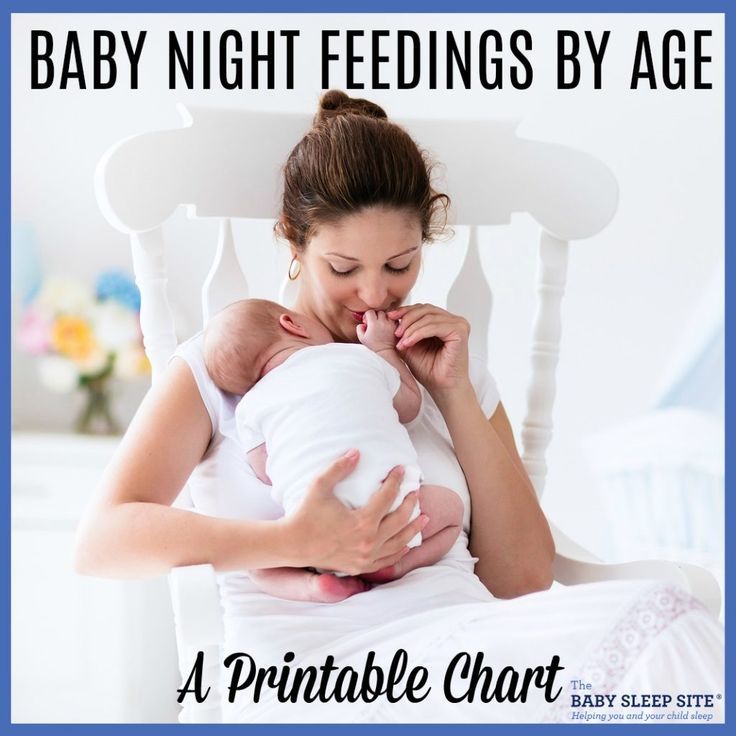 During sleep, the sucking reflex may override the decreased appetite, forcing the baby to eat if a breast or bottle tip appears in the mouth.
During sleep, the sucking reflex may override the decreased appetite, forcing the baby to eat if a breast or bottle tip appears in the mouth.
Hormonal disturbances of this level are quite rare and affect the child's appetite when formula, complementary foods, etc. are introduced. acid reflux) and cow's milk protein allergy if formula fed.
In a rather mild variant compared to the manifestations of diseases, such a refusal can be observed in children with excruciating colic, increased gas formation, disturbance of the intestinal flora and high sensitivity to discomfort in the intestines. The ingress of food into the gastrointestinal tract activates intestinal motility and causes pain. And in a dream, both the child himself and his gastrointestinal tract react less brightly. In the absence of infectious diseases and pathologies of the digestive system, the diet is adjusted at the end of the period of colic and gas, on average by the age of 12-15 weeks.
Psychoneurological features of infants and mothers
Both doctors and mothers note that most often refusal to eat during wakefulness first manifests itself at the age of 2. 5-4 months. It is during this period that the attention of the baby "turns on" and extends to the surrounding people and objects. The so-called “crisis period”, a jump in growth and development, prevents the child from concentrating on the sucking process, because there are suddenly so many interesting things around, and a significant adult nearby gives a sense of security. So, instead of eating, you need to explore the world! Well, you have to eat in a dream, when nothing distracts you.
5-4 months. It is during this period that the attention of the baby "turns on" and extends to the surrounding people and objects. The so-called “crisis period”, a jump in growth and development, prevents the child from concentrating on the sucking process, because there are suddenly so many interesting things around, and a significant adult nearby gives a sense of security. So, instead of eating, you need to explore the world! Well, you have to eat in a dream, when nothing distracts you.
Expert commentEkaterina Valova, psychologist
It may not seem quite natural, but there are children who are able to distract themselves from hunger due to craving for new experiences. Although curiosity is not the only factor that prevents babies from concentrating on nutrition. The set of psychological and neurological characteristics of the child plays a role:
temperament. Although it is difficult to talk about determining the type of temperament in an infant, in some cases it is possible to diagnose quite accurately exactly how the child is inclined to react, how quickly he responds to a stimulus, etc. ; the biological rhythms of the baby's body determine how quickly he gets excited and tired, when and how he falls asleep, how hunger arises - gradually or suddenly, etc .; reaction to innovations, to a new position, sensation, visual object, auditory stimulus. The child may at the very first moment reject something new or, conversely, be actively interested in it.
; the biological rhythms of the baby's body determine how quickly he gets excited and tired, when and how he falls asleep, how hunger arises - gradually or suddenly, etc .; reaction to innovations, to a new position, sensation, visual object, auditory stimulus. The child may at the very first moment reject something new or, conversely, be actively interested in it.
Children with a pronounced craving for something new, with a violation of the rhythm of the body, a pronounced temperament are absolutely normal, although their manner of eating only in the absence of stimuli can bring a lot of inconvenience to nursing parents. These periods pass, and the diet returns to normal.
Another case is if a child, against the background of temperamental features, has a negative experience associated with feeding: fear, excess milk flow during some period of lactation, mother's absence and transfer of "feeding rights" to another adult. Such possible factors must also be taken into account and their influence on the baby's eating habits must be reduced, preventing them from gaining a foothold.
An alternative that also affects the child's nutrition during this period is the onset of teething. The act of sucking can be painful, and some babies may refuse to eat to avoid adding discomfort to their gums.
Breastfeeding specialists in situations of refusal of the breast suggest a method of "nesting": giving the baby to the mother "for personal use" in a large amount in order to avoid the child's likely desire for communication and contact, which are offered only during the feeding period. To reduce the chance of active exploration of the world during feeding moments, it is worth allocating a separate place and creating a very calm environment (muffled lights, white noise, music or singing) in which the baby will not be distracted.
As a separate point, it is worth noting that many young mothers are often overwhelmed both with household chores and caring for the baby, as well as fears about his condition, which leads to stress. There are also manifestations of increased anxiety, postpartum depression, which also affects the contact between the mother and the baby and can lead to breast rejection. In this case, first of all, it is necessary to help the mother, relieve her of the load, both physical and psychological, help her remember her needs and replenish her strength. You may need the help of a lactation consultant, a psychologist, and in some cases a specialized doctor.
In this case, first of all, it is necessary to help the mother, relieve her of the load, both physical and psychological, help her remember her needs and replenish her strength. You may need the help of a lactation consultant, a psychologist, and in some cases a specialized doctor.
Algorithm for solving the problem with "sleepy feedings"
First you need to make sure that the problem really exists. Temporary refusals of the breast, growth crises, minor changes in the behavior of the child during feeding are the norm for the development of babies. The underweight that accompanies undernutrition must also be assessed objectively. To assess weight gain, you should use tables of the ratio of height, weight and dynamics of gains, and not personal impressions or the words of relatives: as you know, a baby that grandmothers like most often suffers from the second stage of obesity.
When a real problem is identified, the first thing to do is to consult a pediatrician in order to rule out possible acid reflux or allergic reactions.







